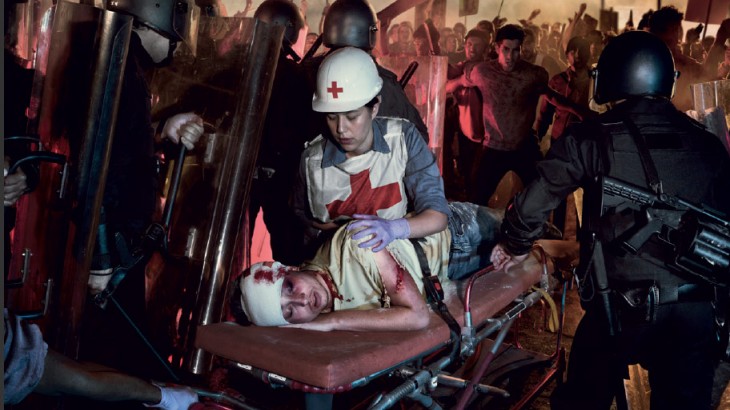Debate on "Health care and violence: the need for effective protection" at the 69th session of the United Nations General Assembly

Attacks on health-care providers and their patients are frequent in modern conflict despite being expressly forbidden under the Geneva Conventions of 1949. States play a key role in addressing the problem, but that role needs to be reinforced. A high-level panel, bringing together the ICRC, representatives of States, international organizations and the humanitarian community, will debate the reasons why violence against health care is so prevalent and discuss concrete measures States can take to protect the delivery of safe and impartial health services.
Event info:
When: Thursday 25 September 2014, 09:00-10:30 am (NYT)
Where: UN General Assembly building, Conference Room 6, New York, United States (on invitation only)
The protection of the wounded and sick and those who care for them in conflict was the focus of the first Geneva Convention, 150 years ago. Those specific provisions under international humanitarian law were consolidated in the four Geneva Conventions of 1949 and their two Additional Protocols of 1977. Yet increasingly, violence against health personnel, facilities and vehicles, or the obstruction of health-care, are accepted as the inevitable side-effect of conflict, or indeed may form part of a deliberate strategy.
Co-chaired by the President of the ICRC and the Director-General of the World Health Organisation and moderated by the UN Under-Secretary-General for Humanitarian Affairs, this high-level debate brings together representatives of States, international organizations and the humanitarian community to discuss concrete measures that States can take to build a comprehensive protective environment where access to and delivery of health care are safe and to enhance the ability of their health systems to face crises.
Chair:
- Mr Peter Maurer, President of the International Committee of the Red Cross (ICRC)
- Dr Margaret Chan, Director-General of the World Health Organisation (WHO).
Opening remarks:
- H.E. Jan Eliasson, United Nations Deputy-Secretary-General
Moderator:
- Ms Valerie Amos, Under-Secretary-General for Humanitarian Affairs and Emergency Relief Coordinator
Panellists:
- H.E. Børge Brende, Minister of Foreign Affairs, Norway
- H.E. Carl Bildt, Minister of Foreign Affairs, Sweden
- Prof. Thérèse Aya N’dri-Yoman, former Minister of Health and HIV prevention, Côte d'Ivoire
- Dr Margaret Chan, Director-General of the World Health Organisation (WHO)
- Mr Peter Maurer, President of the International Committee of the Red Cross (ICRC)
See also : States must do more to stem "new & frightening trend" of attacks against health care, Intercross - ICRC Washington blog
For more information about the event, please contact:
Irene Raciti, Health Care in Danger campaign coordinator, tel: +41 22 730 3080
For media requests, please contact:
Anastasia Isyuk, Health Care in Danger public relations officer, ICRC Geneva, tel: +41 22 730 3023 or mob. +41 79 251 9302
Anna Nelson, ICRC Washington delegation spokesperson, ICRC Washington tel: +1 202 587 4604 or mob. +1 202 361 1566
For more information on the Health Care in Danger project.
